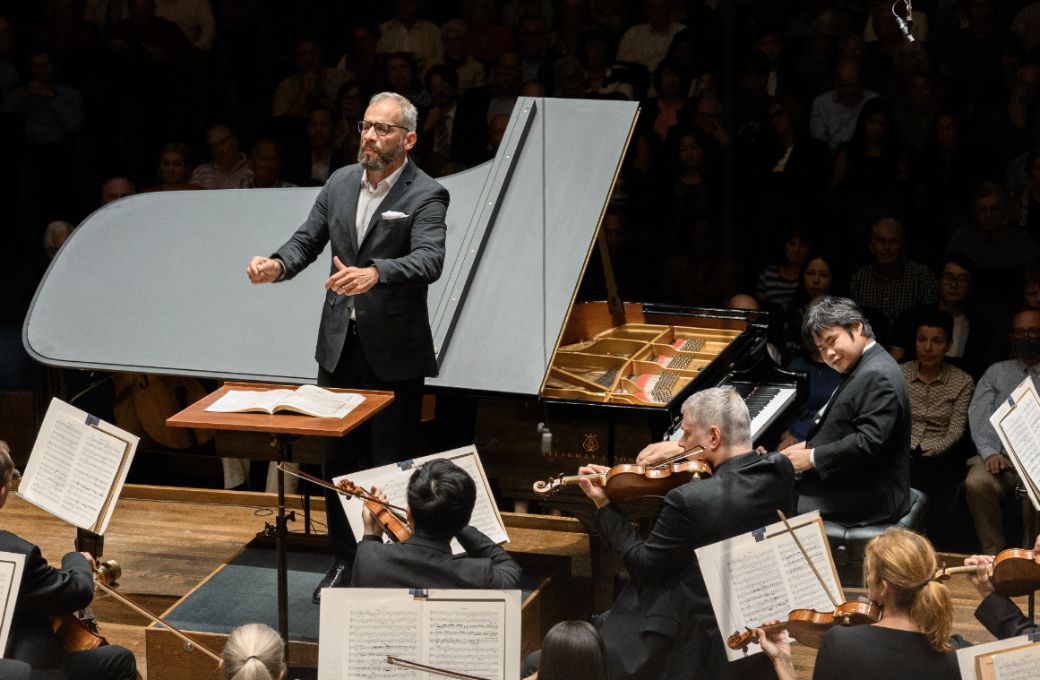A highlight of a summer in Cleveland has dependably been The Cleveland Orchestra’s Summers@Severance series, an initiative which ensures the orchestra’s primary venue continues to resound with music during the summer months. Thursday evening’s program, the last in this summer’s offerings, leaned exclusively into the Romantic repertoire with a major work each from Chopin and Rachmaninov.

Chopin’s Piano Concerto no. 2 in F minor saw the Cleveland Orchestra debut of Japanese pianist Nobuyuki Tsujii. With the orchestra helmed by guest conductor Dima Slobodeniouk, a hushed entry in the strings introduced the tragic F minor tonality. Despite Chopin’s slim orchestration, Slobodeniouk teased out a rich, robust sound, with winds and brass offering some sunnier contrast. The pianist entered by way of a thunderous cascade, yet always lyrical at heart. Tsujii played with a remarkable flexibility with fluid traversals across the span of the keyboard, and a velvety touch that brought out the intricacies of Chopin’s often florid writing.
Tsujii seemed to be at one with his instrument, playing nearly without pause in this endless fountain of inspiration from the composer’s youthful pen (Chopin wrote this work as a mere 19-year-old). The darkness of the coda gave way to the serenity of the central Larghetto, during which time seemed to stand still. A nervous energy in the finale was countered by more jovial material – and some stylish figurations in the piano cast against col legno strings. It was the jubilant that had the final word, however, closing in high spirits. As an encore, Tsujii captivated the audience – already clearly moved by his artistry – with a particularly dazzling rendition of Liszt’s ferociously demanding La campanella.
Rachmaninov’s Symphony no. 2 in E minor generously filled the rest of the evening. A single thread grew to deep resonance, a signal of the work’s sheer sense of scale, and the Everest that lay ahead. Between both composers, this was certainly an evening for lush melodies. Slobodeniouk’s graceful conducting mirrored the contours of Rachmaninov’s arching melodic lines, and he commanded the ebb and flow of the sprawling first movement with unified direction. Climactic moments were sometimes a bit brash – a little can go a long way in the relatively intimate space of Severance Hall.
The Scherzo that followed was taken at a blistering tempo, and touches of the glockenspiel splashed the musical canvas with brilliant color. Warmly sumptuous material followed for an indulgent contrast – quintessential Rachmaninov, and a theme I can’t dissociate from Michael Keaton levitating above Manhattan in the film Birdman. Principal clarinet Afendi Yusuf deftly shaped the long and lyrical solo passage of the Adagio into an essay of magnificent beauty. This heartfelt slow movement was sincere without veering into the sentimental. What remained was the boisterous and bellicose finale, drawing the work to a glittering close.


